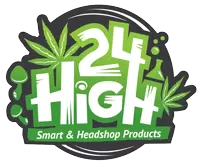DO YOUR OWN RESEARCH: THIS IS HOW TO FIND RELIABLE INFORMATION ON DRUGS AND SUPPLEMENTS

Information is everywhere, thanks to the internet. Great, all that knowledge at our fingertips. But there is a big drawback: we don't really know anymore what is correct and what is not. It sometimes seems as if scientists contradict each other. And so a lot of people fall for complete nonsense stories. The consequences can vary. You may lose a few tens because you buy a supplement that doesn't work. But your health could also be at risk. For instance, millions of people don't eat gluten because a few influencers shout that wheat and bread are bad for you. Which, by the way, is not true, so by all means eat those croissants if you're feeling good about it. So what are sources you can trust? How and where can you find reliable information to make the right choices regarding drugs, supplements and your overall health?
These are not reliable sources for info on substances and drugs
To know what are reliable sources when looking for information on drugs, for example, you first need to know what the biggest pitfalls are. Hereby:
Influencers and supplements: the worst source of reliable information
Did you catch the Vitakruid scandal? Currently, this company is in disrepute because of their rather high-profile dealings. They (very cleverly) use Dutch celebrities and influencers to promote their products in a paid way. At such a time, you may already be very critical. Someone who promotes a product because it makes them money is obviously not very credible. For money, people will do anything. So also lie or fake enthusiasm. An influencer who is enthusiastic about a coffee mug will not be a danger to your health, at most to your wallet. But a swishy former soap star with no qualifications really can't give you reliable information about supplements and their effects on your health. Also beware of influencers who 'keep it to themselves'. If someone like that says "this works well for me!", they know their followers hope it works for them too. And so they buy those pills and powders without doing their own research.
Google: recognise the ad
If you Google for a particular supplement, you assume that the most important and reliable information will appear at the top. Unfortunately, this is not true. Google shows the ads first: parties that pay to get to the top. You only recognise these if you pay close attention to them, because it is listed in fairly modest letters. Also, high positions in Google do not necessarily mean that this information is correct; rather, it means that this is probably a platform that is popular and has done its best for it.
Forums, Reddit and reviews: anecdotes are not proof
Through search engines, you often end up on websites like Drug Forum and Reddit. These may give you a nice specific answer to your question about designer drugs, for example, but from one person. No matter how much you recognise that person's situation: this tells you exactly nothing. So don't start self-drugging based on one experience of a complete stranger on the internet.

So where can I find reliable information on supplements and drugs?
Of course it is tempting and understandable to trust the first source you come across when looking for information on drugs or supplements. Quickly scroll through a forum discussion where everyone seems to support your hunch and go with it. But that leads to dangers like overdose or drug interactions. There are plenty of people who would promote the combination of drugs such as cannabis and alcohol, but at least as many people lie 'stoned' in a corner.
With these tips, you will be able to find reliable information about supplements and drugs:
Scientific sources
Scientific sources you can consult can be found via Google Scholar, for example. This is Google, but for scientific publications. Here are a few tips:
- Pay particular attention to studies that have been cited often. This means that other scientists found the article valuable.
- Look at the type of research. A 'review', meta-analysis and review article have the highest level of reliability when it comes to scientific sources. So you can trust this information about pills, powders, supplements, active ingredients and drugs.
Then you have other scientific sources that are reliable. For example, university websites. And by the way, there are also reliable influencers! Because scientists are also on social media. Pay attention to their titles and what other (reliable!) people are saying about them. For example, follow Sjamaandriaan on Instagram; he likes to expose pseudo-scientists and influencers who just say whatever. And also especially ask a doctor for reliable information about drugs and substances, for example. He has obviously sat on that.
Learn to recognise reliable sources: check this video
Want to know how to recognise reliable information in less than 6 minutes? Watch this video from Tilburg University and you will be completely up to speed.
No conclusion is also a conclusion
Science is bound by strict rules before it is allowed to make a particular claim. Influencers and forum users mostly shout whatever they want, but a scientist has to be honest and nuanced. As a result, it quickly seems as if such a stilted influencer has a good story to tell, when in fact you think those scientists are all doubtful. The reverse is true: the scientist knows that it takes a lot of evidence to make a reliable claim about supplements, drugs, nutrition and other things. Remember that especially when you read a scientific study that doesn't have such a clear conclusion. After all, no concrete effects is just another conclusion.
And also know: one study is not a study. Take the time to delve into a remedy. That too is using wisely.

















